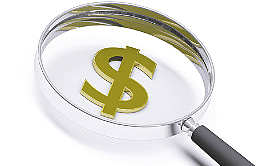

By Catherine Austin Fitts
[Published in 2005, this checklist was designed to help people shift from large banks whose incentives are out of alignment with people and living systems to community banks, savings banks and credit unions that circulate more resources locally and perceive their role as helping local business and families succeed. Shifting our deposits and financial transactions to financial institutions that have an incentive to help us succeed can make a profound difference in the course of events.]
A. Identify Local Banks
1. Get the list of the banks and credit unions in your area from your local Yellow Pages. Delete names that you know to be large banks, including names on the Solari US Banking Tapeworm 20 List.
2. Visit your local Chamber of Commerce and ask them for a list of all banks in your area — ask them to identify which only operate locally and/or regionally and which are owned locally or regionally, or, if credit unions, controlled locally.
A local bank is a bank that operates within your local area and is primarily owned or controlled by people who live within or near your local area.
A regional bank is one that operates in your state and a few other states and is owned and/or controlled by people based in those states.
Continue reading the article . . .
Note:
This is Move Your Money day
Depending on how many banks you want to consider and whether you can access good recommendations in the normal course of living without taking a lot of time, identifying and moving your bank account could take anywhere from 4-15 hours over a period of 1-4 weeks. If you team up with close friends and share the research, it can go even faster! The key to speed is to winnow the list down to the most likely candidates.
